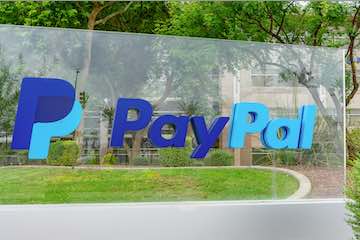PayPal is in the early stages of a deal to acquire Pinterest, according to published reports. If successful, the transaction could be the first of many similar acquisitions, with platforms seeking to integrate vertically.
Experts denigrated the deal. But they miss the point, in my opinion.
In this article, I’ll explain why it makes sense for PayPal to buy Pinterest, and why other ecommerce providers might take vertical integration seriously.
PayPal’s acquisition of Pinterest could add weight to vertical integration.
Vertical integration
Major Chinese traders have demonstrated that vertical integration in e-commerce works.
Social commerce in China combines content, chat, live streaming, sharing and retail shopping. It blurs the distinctions between social media networks and online stores (to paraphrase one of my posts).
Successful e-commerce-focused businesses in China are integrated, despite the government’s apparent machinations to break or limit their influence. These companies have a social media network or a content branch. They have a retail component or a marketplace. They have payment processing and other financial technology services. They have execution services. And they often have a device, like a phone, or a network of devices.
Similar patterns exist with large Western companies.
Amazon has Prime video, a content network. The company has a huge retail market. He has capacities of realization. He has Amazon Pay. And it has smart speakers and Kindle devices.
Apple, Google, Facebook and Walmart also offer a combination of these services or products. Other companies, including Shopify, could follow suit.
In that sense, PayPal buying Pinterest would put it in good company. It would provide key pieces of the vertical integration puzzle.
Creators economy
PayPal might want to focus on a niche with great room for growth and not yet dominated by one or two vertically integrated companies. This niche could be the economy of creators.
Bloggers, bloggers, podcasters, chefs, coaches, consultants, independent musicians and artists are among the long list of entrepreneurs collectively called creators. Often times, creators produce content for an audience on platforms such as YouTube, Instagram, TikTok, or Pinterest. They develop a lot of adoring fans, and then these creators look for ways to monetize that relationship.
The creators’ economy is said to be worth around $ 100 billion, but it has the potential to grow. The opportunity to serve creators is, for some, a gold rush in the tech industry.
Pinterest recently changed its interface to encourage creators. If the combination of PayPal and Pinterest made the latter successful as an adult TikTok, the parent might be in a good position to grow up.
Adios payment processing
One of PayPal’s core business, payment processing, faces many challenges.
Direct rivals. Bloody competition in the payment processing industry could make it difficult for pure processors to grow or even survive. Providers include PayPal, Helcim, Square, Stripe, Authorize.net, and hundreds more.
New entrants. Many companies are entering the payment processing industry in one way or another – Amazon Pay, Google Pay, Apple Pay, Walmart Pay, Shopify Pay, etc. Vertically integrated businesses understand that payment processing is not a separate function but a feature of another service. While these integrated companies may make deals with outright payment processors in the short term, they might as well develop the capabilities themselves.
Replacements. Stable and central bank digital currencies may sound like science fiction, but they could marginalize online purchases with bank-issued credit cards and debit cards. Stablecoin and CBDC are said to have much lower processing fees than payment cards, offer relatively better fraud protection, and open up new markets. In either case, stablecoin and CBDC, payment processors would be unnecessary.
Dissatisfied customers. Merchants and direct-to-consumer brands pay more than $ 100 billion a year in payment processing fees. All sellers are looking for ways to reduce these fees in my experience – I have never met a merchant who liked their payment processor. Most would ditch the processor for a better, cheaper alternative.
More soon?
Any of these competitive forces could disrupt PayPal’s payment processing business. Its acquisition of Pinterest could secure its future. Look for other industry participants to seek vertical integration and growth.

